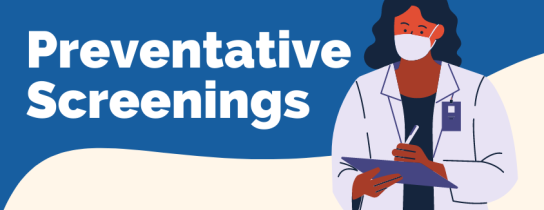Preventive screenings are essential tools in maintaining good health. These tests can help detect potential health problems early, often before symptoms appear. Early detection can significantly improve treatment outcomes and increase the chances of a full recovery.
Common Preventive Screenings
Here are some common preventive screenings recommended by healthcare providers:
For Adults:
- Blood Pressure Screening: Regular blood pressure checks can help identify and manage high blood pressure.
- Cholesterol Screening: Monitoring cholesterol levels can help reduce the risk of heart disease.
- Diabetes Screening: Regular blood sugar tests can detect diabetes early.
- Cancer Screenings:
- Breast Cancer: Mammograms
- Cervical Cancer: Pap smears and HPV tests
- Colorectal Cancer: Colonoscopy or fecal occult blood test
- Skin Cancer: Regular skin self-exams and professional skin checks
- Prostate Cancer: Prostate-specific antigen (PSA) test and digital rectal exam
- Vision Screening: Regular eye exams can detect vision problems and eye diseases.
- Hearing Screening: Hearing tests can identify hearing loss and other ear problems.
For Children and Adolescents:
- Vision and Hearing Screenings: Regular check-ups can identify and address any vision or hearing issues.
- Dental Check-ups: Regular dental exams and cleanings can help prevent dental problems.
- Immunizations: Staying up-to-date on vaccinations can protect against various infectious diseases.
Factors Affecting Screening Recommendations
Several factors influence screening recommendations, including:
- Age: Certain screenings are recommended at specific ages.
- Family History: A family history of certain diseases may increase the need for earlier or more frequent screenings.
- Lifestyle Factors: Smoking, excessive alcohol consumption, and unhealthy diets can increase the risk of certain diseases.
- Overall Health: Your general health status can influence screening recommendations.
By prioritizing preventive screenings, you can take an active role in maintaining your health and well-being. Consult with your healthcare provider to determine the most appropriate screening schedule for you.
Would you like to know more about specific preventive screenings or how to reduce your risk of certain diseases?




